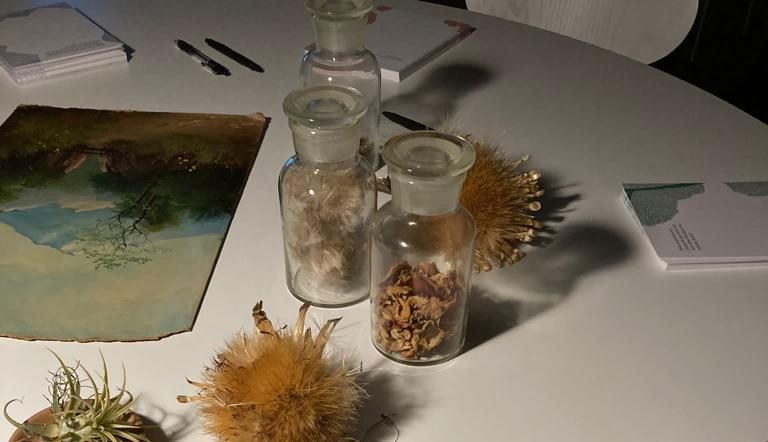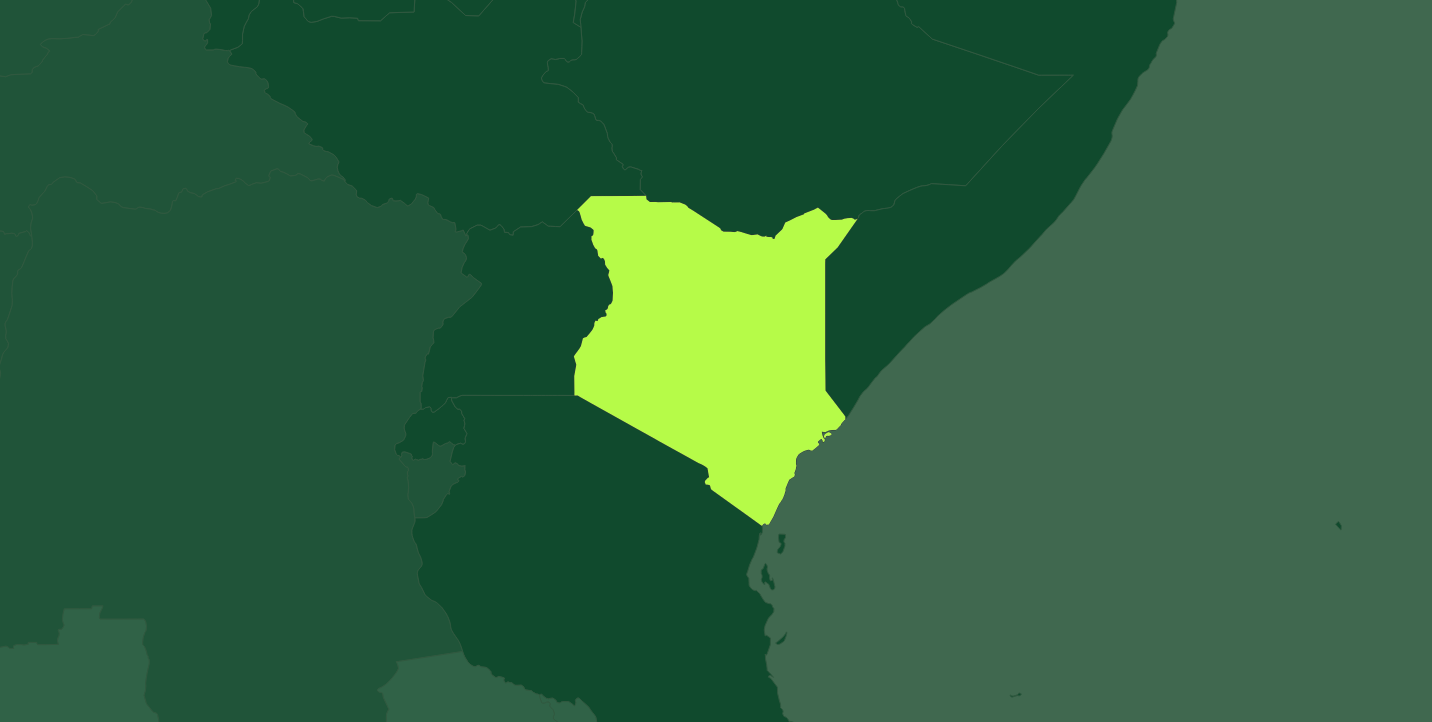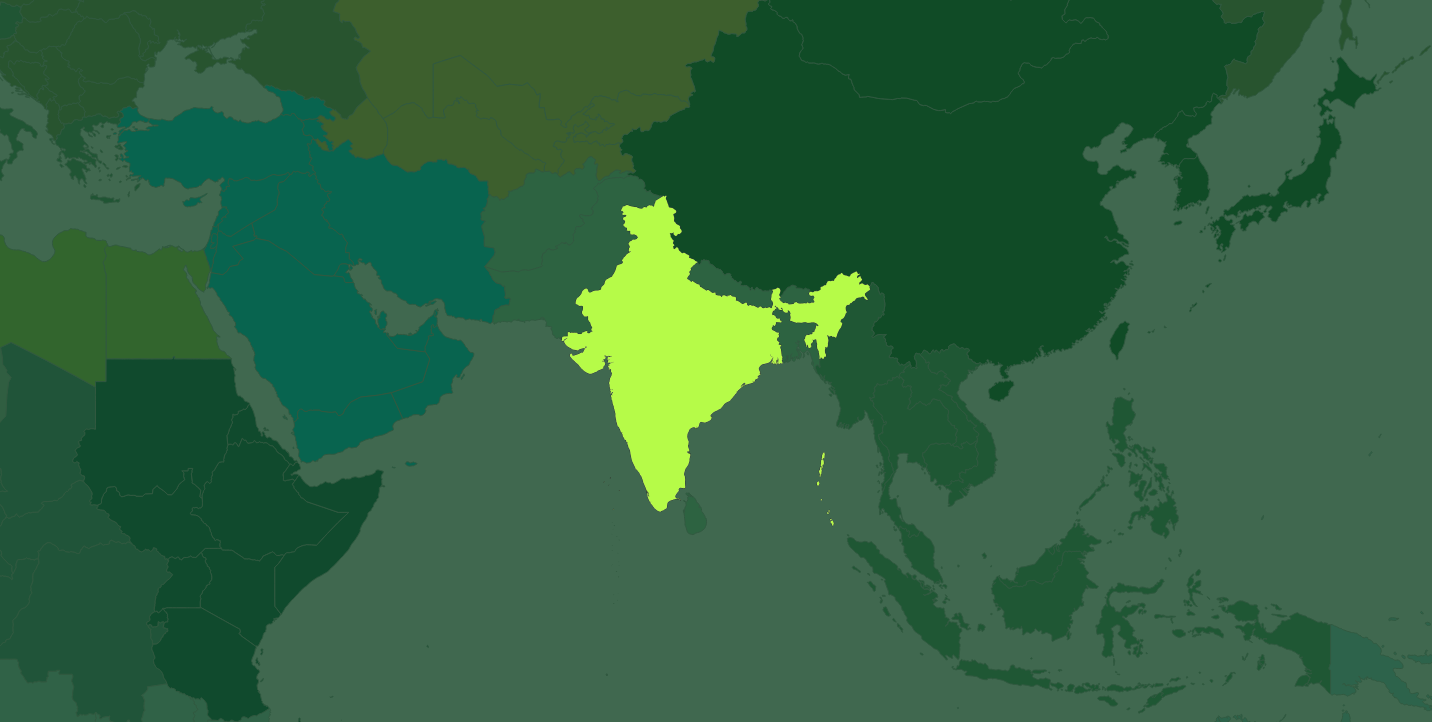
Land Body Ecologies – The impacts of environmental change on mental health (LBE)
Duration: 1 October 2021 – 30 September 2023
Country: Finland (Arctic North), India, Kenya, Uganda, and United Kingdom
Communities: Ogiek (Kenya), tribal communities in the buffer zone around the Bannerghatta National Park (India), northern Finnish border region communities including the Sámi, and the Batwa (Uganda).
What is this programme about?
This programme connects a multi-disciplinary network of artists, researchers, and human rights activists in a two-year collaborative research residency exploring the concept of solastalgia, defined as the emotional and existential suffering caused by environmental change, from the perspective of marginalised communities who have a strong bond to the natural world and currently experience environmental change. The structure includes:
- A network of global field stations in the Arctic North, India, Kenya and Uganda as key immersion mechanisms, embedded with local and indigenous communities through grassroots organizations to explore, understand and capture their culturally unique connection to land and lived experiences of Solastalgia, in constant exchange and connection to;
- The Wellcome Hub in London as the living breathing embodiment of the landscapes the research is immersed in. Live data, storytelling and artistic approaches will be used to bring the identity, feel and texture, of these remote places within the physical space of the Hub.
The programme aims to:
- Understand how the mental health of marginalised communities is affected by changes in their ecosystems
- Explore the definition of solastalgia as it currently stands and whether it encompasses the lived experiences of marginalised, land-dependent communities
- Understand the role that historical and contemporary violence faced by these communities plays in their lived experience of solastalgia.
What are we aiming to achieve?
We want communities to own their narratives and are able to foster support networks for themselves, while also engaging with critical stakeholders around the issue.
We want the climate change discourse to bring in more diverse voices and perspectives, leading to more empathetic and layered approaches to mental health, new research and frameworks around developing techniques and strategies for addressing trauma in unique and different contexts and acknowledging the need to restore human connections to land and nature.
Throughout the programme, we include researchers and content producers from marginalized communities into the global production of knowledge to publish more inclusive context specific narratives of climate change and mental health. We aim to engage a wider public through multiple channels, including publications and exhibitions, which will also act as key moments of press and media engagement.
We will bring together differing viewpoints at the London Hub, where individuals, including young people, academics in mental health and environment, human rights, policymakers positioned to action change, climate refugees, minority communities and corporate entities, will, together with the communities (even if virtually) reflect, discuss and build on narratives emerging from the communities.
Through this process of ‘entanglement,’ we aim to widen the climate change discourse to include the lived experiences of marginalized communities experiencing Solastalgia and influence the ways land-related trauma is understood in the future including during the formation of diagnostic psychiatric criteria, assessment, and therapeutic treatment in mental healthcare.
What is the context?
Climate change is a global issue caused by complex economic, political and social factors. It impacts those who are vulnerable not only through their proximity to the impact, but also through their limited adaptive capacity; from the Ogiek communities in Kenya facing evictions in the name of conservation from their ancestral home, the Mau Forest, to the tribes inhabiting the forest buffer zones in the Bannerghatta Natural Park, India, threatened by urban expansion and the Arctic hunters and herders in Finland losing their heritage to global warming and modernisation.
Their voices and experiences, however, have largely been missing from global narratives on climate change and resilience. Most studies examining Solastalgia do not explore the concept from an indigenous perspective, while knowledge and content producers from marginalized communities are neglected. As a result, they become dehumanized, their lives expendable. Yet, they are the most critical link, through their histories, livelihoods and knowledge systems, because of their embodied sense of place, their deep connection and attunement to the natural world and the changes within. Indigenous people represent 370 million people across 90 countries and 5000+ distinct cultures, account for most of the world’s cultural diversity and dwell in areas holding most of the world’s biodiversity.
This diversity and knowledge is a critical global resource in understanding and adapting positively to climate change. Our physical and mental health is intensely dependent on our relationship with the natural world, which is increasingly being damaged. Only by incorporating the lived experiences of land trauma will we begin to fully understand the implications of this untethering.
The dominant global discourse on the Climate Crisis is data driven, primarily focused on carbon reduction and prevention of the 2-degree rise. It is imperative to address the huge research gap regarding mental health in marginalized communities and its correlation to the impact of climate change on their connection to the land; the lack of critical understanding of how ecosystem traumas are deeply entangled with human experiences; the urgency to act at this juncture in society and time and widen the climate change discourse to include marginalized communities.
The mainstream development agenda, while it brought transformative change, has also carelessly silenced the lived experiences and actively delegitimized the worldview of many sidelined and undervalued groups, bringing destructive change to their ways of living; a loss of stories, songs and their language itself, loss of biodiversity and the gradual erosion of their identity. A more inclusive, trans-disciplinary human-based approach is needed.
Who are our partners?
- Action For Batwa Empowerment Group (Uganda)
- Dr Ayesha Ahmad (United Kingdom)
- Dr Outi Autti (Finland)
- Invisible Flock (United Kingdom)
- Ogiek Peoples’ Development Program (Kenya)
- Quicksand (India)
- Sheila Ghelani (United Kingdom)
- Waria (Finland)
Who is funding this programme?
This programme is funded by the Wellcome Trust.
 A photo from the LBE programme launch event, 16 November 2021. Credit: MRG.
A photo from the LBE programme launch event, 16 November 2021. Credit: MRG.



